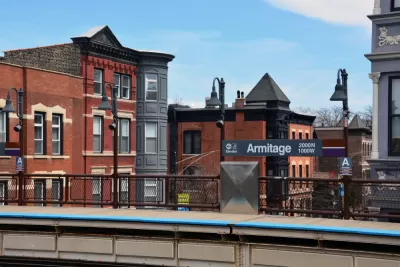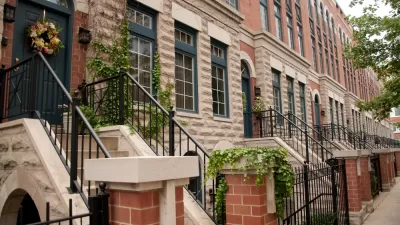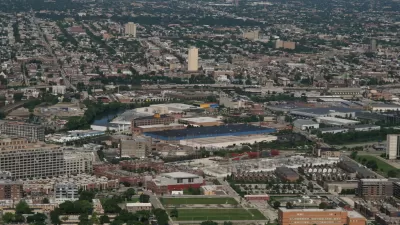The city is seeing a rapid loss of its signature two-, three-, and four-flat residential buildings, which historically served as affordable housing for working-class families.

"A report from the Institute for Housing Studies at DePaul University released Thursday shows Chicago has lost more than 4,800 two- to four-unit buildings since 2013, representing 11,775 rental and owner-occupied housing units," writes Hannah Alani in Block Club Chicago. But wealthy and poor neighborhoods are losing this housing stock "for starkly different reasons."
Across the city, 47.5 percent of demolished two-, three-, and four-flats "were replaced with a single-family home through conversion, or demolition and new construction, with the work being done mostly in North Side neighborhoods." But "about one-third of the city’s flats gave way to vacant land, with that happening mostly in South and West side neighborhoods dealing with disinvestment, long-term population loss and a foreclosure crisis."
Neighborhoods like Lincoln Park are quickly losing what was once "ample housing stock for working-class families," writes Alani. According to the DePaul research, "1,150 two- to four-unit buildings have been lost in lower-cost communities since 2013. Of those, 80.6 percent were converted to non-residential land uses. And of those, 89.1 percent are classified as vacant land."
To slow the conversion trend and preserve affordable multi-unit housing, city leaders are enacting ordinances that limit redevelopment or ban demolitions. "For example, the demolition ban along the Bloomingdale Trail prevents owners from tearing down two-flats and building single-family residences. An anti-deconversion ordinance in Pilsen aims to interrupt the loss of cheap housing stock in the gentrifying neighborhood. There’s also a new ordinance permitting a pilot program for Accessory Dwelling Units."

Maui's Vacation Rental Debate Turns Ugly
Verbal attacks, misinformation campaigns and fistfights plague a high-stakes debate to convert thousands of vacation rentals into long-term housing.

Planetizen Federal Action Tracker
A weekly monitor of how Trump’s orders and actions are impacting planners and planning in America.

In Urban Planning, AI Prompting Could be the New Design Thinking
Creativity has long been key to great urban design. What if we see AI as our new creative partner?

King County Supportive Housing Program Offers Hope for Unhoused Residents
The county is taking a ‘Housing First’ approach that prioritizes getting people into housing, then offering wraparound supportive services.

Researchers Use AI to Get Clearer Picture of US Housing
Analysts are using artificial intelligence to supercharge their research by allowing them to comb through data faster. Though these AI tools can be error prone, they save time and housing researchers are optimistic about the future.

Making Shared Micromobility More Inclusive
Cities and shared mobility system operators can do more to include people with disabilities in planning and operations, per a new report.
Urban Design for Planners 1: Software Tools
This six-course series explores essential urban design concepts using open source software and equips planners with the tools they need to participate fully in the urban design process.
Planning for Universal Design
Learn the tools for implementing Universal Design in planning regulations.
planning NEXT
Appalachian Highlands Housing Partners
Mpact (founded as Rail~Volution)
City of Camden Redevelopment Agency
City of Astoria
City of Portland
City of Laramie





























